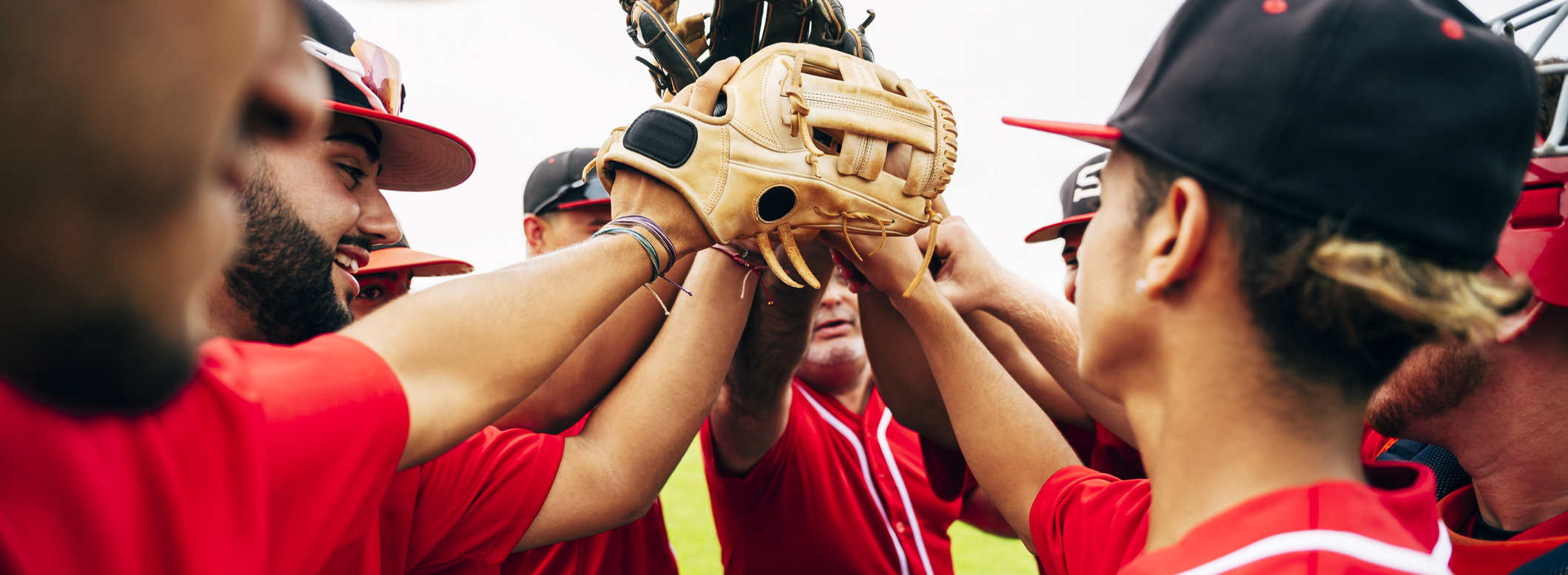I started Manzella Marketing over 30 years ago, which should give you an idea of how long I’ve been around. But when I’m on a softball field, playing in about 50 games a year, I feel like I’m still a kid.
I did the math recently, and I think I’ve played in over 1,250 softball games in my lifetime, with hopefully many more to come.

Why is this important? Because other than the obvious fitness benefits, I’ve learned how team sports can help build character.
In sports like golf and tennis (unless you’re playing in a team match), you can play badly and the only one who cares is you. No one is counting on you, and you don’t need to be responsible to anyone. Add a partner or teammate? Now you have accountability.
In my experience, I’ve learned that many of the character-building traits you learn on the field carry over to teamwork in the workplace. Here are the top 6 traits I’ve fine-tuned through sports and how they apply to the workplace.
Mental toughness. Team sports provide so many opportunities to make the play or wilt under pressure. The more practice you get in those situations, the better you will be able to deal with that pressure throughout your life. You build mental toughness by working hard, performing under pressure and learning to handle frustration. Team sports provides the opportunity to compete, develop tenacity, tolerate the natural highs and lows, and become more resilient—all of which can help you better deal with everyday stress.
Teamwork and leadership skills. For most sports, you need to create a game plan, then follow it through, working as a team to accomplish your goal. If you can’t do those things as a team, you probably won’t be successful. Working as a team to reach a common goal helps develop communication and problem-solving skills that will benefit you on and off the field.
Responsibility. Team players learn about responsibility as they recognize the role they’re expected to play on their team. Leadership isn’t always about who is the best player; leadership is about taking responsibility, being accountable for your actions, and being a positive role model for your teammates.
Social skills. Team sports help build social skills because they require social interaction and encourage individuals to think from a team perspective, not as a one-person band.
Self confidence. Getting a confidence boost from your coach or fellow players helps go a long way in building self esteem, something I feel is critical to being successful. Athletes who participate in team sports feel better about themselves. They also report fewer depressive symptoms, in part because of the positive social interactions that team sports can create.
Good sportsmanship. You aren’t always going to win. Good sportsmanship helps players learn how to deal with losing. It’s important because it will dictate how you react to bigger losses in life—as well as how you view and deal with your competition.
Being part of a team teaches you how to work toward a common goal, serving to unite everyone on your team. Teamwork requires you to be self-disciplined and responsible for your actions; and your ability to work as a team can dictate how successful you are, both personally and in business.
So join that co-ed softball or volleyball team, social club soccer or kickball team. And if you have kids, encourage them to join a team! It’s not about being the best player out there. It’s about positive social interaction and building character.






